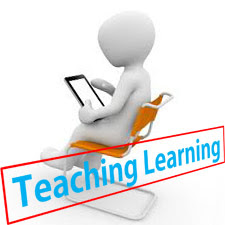Introduction
Plagiarism simply refers to use somebody's
ideas, opinions or report by others while writing. It is also called the
intellectual theft or crime. Copying someone else’s work
without giving credit is going to end up in disastrous results. You can easily
find an online apps and it should help, but there are some other ways you can
avoid the issue. Plagiarism is more a ethical variable in writing. And it
depends on person to person whether be honest in writing or just be more
indirect while copying.
When a writer understands the necessity of avoiding plagiarism, s/he
stands a better chance at implementing steps to help s/he stays out of trouble.
Here are some of the best tips to help you avoid plagiarism. Plagiarism should be discouraged everywhere
from academic to any professional sectors. When we look at the academic sectors
especially at the schools and universities, mainly in the context of the
developing countries and in the third world countries, it has become a chronic
issue. The teachers seem more frustrated when they test the students.
Discussion
As a teacher it is very challenging prevent
the students from plagiarized writing. The students are under the proper
invigilation of the teachers at the time of test/examine so that they cannot
copy anything from note or internet. Everyone could be satisfied and confidence
about the testing system. More importantly, the certificate after the program
would be taken for granted. The candidates who completed their Bachelor/Master
degrees would be certified and not required to be tested.
This is the exact scenario in the developing
countries. It is practically taking place and well accepted from the people.
But because of the pandemic of Covid-19, the scenario has been changed. The
board examination has been changed into online from the physical mode.
The information, description and analysis of
any topics/subject matter available online in search engines like Google is
taken as the free resources. The topic or particular questions is typed on
Google search bar then whatever appears are copied and then it is submitted to
the teachers. It is not good in any academic institutions in the name of online
exam.
I have heard the students are writing five to
six pages answers to the question of full five marks. In the past, they would
hardly write one and half page and most of the cases, it would be one page
only. What is the main reasons behind this? In the previous years and
semesters, they had to write in the teachers supervision, they could just write
whatever they had memorized. But now there is Google, they copy from it.
Many students are happy to live with Covid-19.
More than 90% students in the context of Nepal, love to write their exam
online. There is direct relation between online exam and Covid-19. Yesterday I
met some students and asked them what is their expectation. They clearly
pronounced that they are enjoying Corona time because they do not have to work
hard for memorization.
As plagiarism is the
unethical practice of using words or ideas (either planned or accidental) of
another author/researcher or your own previous works without proper
acknowledgment. We should try
our best to discourage each other from being plagiarized in their writing.
There are major ways of avoiding plagiarism are as follows:
a. Know What
Plagiarism is
It is always important to know and understand
plagiarism. Many students engage in plagiarism without noticing what it
actually is and how it happens in our writing. And can it be learned to avoid
it from our writing actually is the first step to avoid the plagiarism.
b. Properly quote and paraphrase
Once we know what is plagiarism then we need to be careful while quoting somebody's
ideas and opinion at one side and on the other in case of any academic and
professional writing. American Psychological Association and Modern Language
Association and many other format are there to guide you how to cite from
someone's writing.
c. Tools of Plagiarism
There are many tools available online and
offline available that indicate to what level your writing is plagiarized.
Those checkers of plagiarism demonstrate the percentage of plagiarism is
indicated.
Conclusion
Plagiarism should be taken as a crime. In the
very beginning, the students should get awareness about the nature and
seriousness of plagiarism. Online exams are not appropriate where the students
are not well trained about how to avoid plagiarism in their writings. The above
mentioned tips to avoid the obvious plagiarism should be practiced at the
academic institution.
Bibliography
a)
What every
student should know about avoiding plagiarism by Linda Stern
b)
Doing honest work
in college : how to prepare citations, avoid plagiarism, and achieve real
academic success by Charles Lipson
c)
Plagiarism
[electronic resource] : keeping out of trouble by Rebecca S. Trammell
d)
Basic college
research skills by Steven Bookman, Christopher Warburton
e)
Writing with
sources : a guide for students by Gordon Harvey
f)
Online
newsgathering : research and reporting for journalism by Stephen Quinn and
Stephen Lamble
Other Related Articles









0 Comments